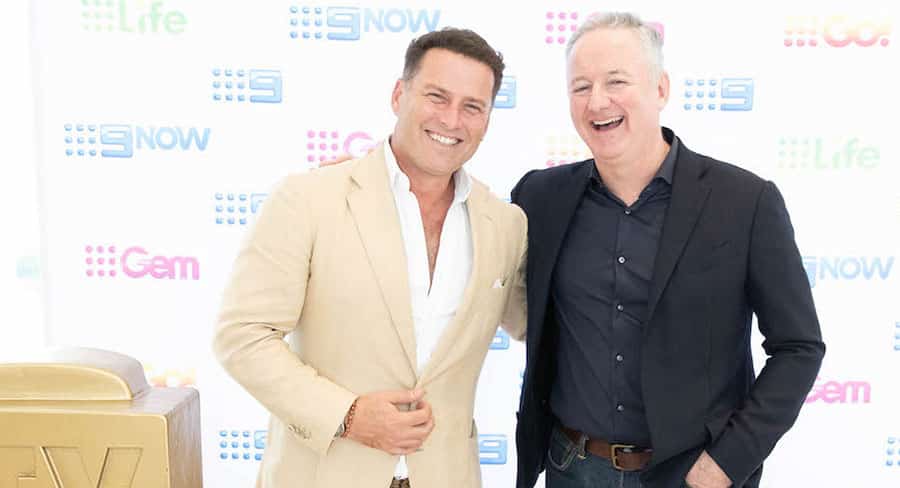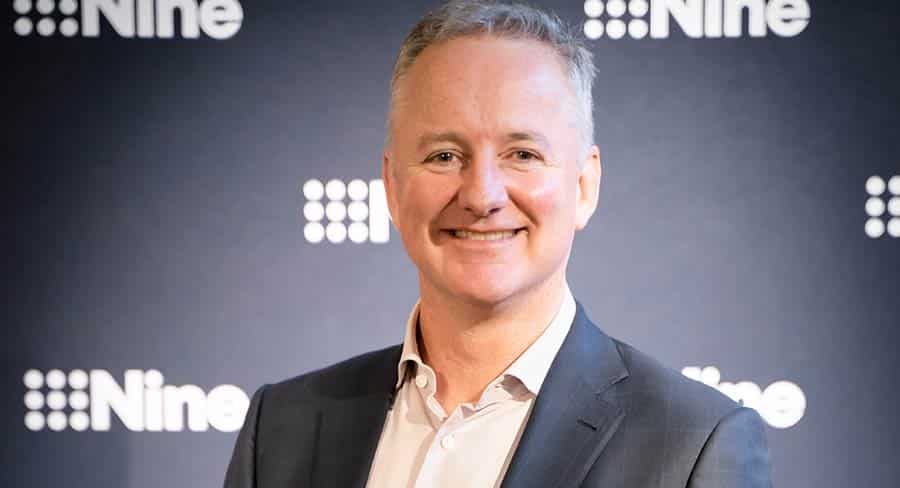Business of Media
Hugh Marks: Digital giants must take rap for comment on their sites
As it stands today, Australian media organisations put their content on the large digital platforms of Google and Facebook, because they control the search and social media markets that Australian media companies need to reach, writes Nine CEO Hugh Marks in The AFR.
These platforms then set the price and the terms around how that content is managed and accessed. The media company gets very little, if any revenue, from that content. But they still carry all the liability – even for comments made by individuals on social media comment threads.

To add to this absurdity the media companies are not able to turn off the comments around that content on Facebook, because Facebook won’t allow it in their terms.
Something is not quite right in this equation.
On Sunday, the government was handed a report from the ACCC. We are hopeful that this will give Australian media the ability to fairly negotiate with these platforms on the terms and price on which our content is managed and displayed.
Photo: Hugh Marks with Karl Stefanovic at the TV Week Logies
WPP may offload Kantar data unit to private equity group
WPP AUNZ is looking to sell its shareholding in data investment management business Kantar in Australia and New Zealand, as the local advertising group’s biggest shareholder, London-based WPP Plc, looks to offload a major stake in Kantar to private equity group Bain Capital, reports The Australian’s Lilly Vitorovich.
The Sydney-based group, which recently appointed BWM executive Jens Monsees as its new boss, said yesterday it was “exploring its strategic options” and was in talks with WPP Plc to “sell all of its equity interests” in Kantar in Australia and New Zealand, should a global transaction occur.
NBN floats potential price hike for Netflix-style video streaming
The National Broadband Network has raised a potential price hike for internet companies to provide streaming services such as Netflix and Stan as it looks at ways to pump up revenue in the face of rampant demand for video, reports The Sydney Morning Herald’s Josh Dye and Jennifer Duke.
The NBN Co released a consultation paper two weeks ago that asked service providers such as Telstra and Optus whether they would support an extra charge for streaming video above the rate charged for other data.

If accepted by the service providers, the proposal would allow the NBN to make more money out of the video data by charging a premium for it.
Industry sources, who declined to named, said if it was implemented the additional cost would likely be passed onto consumers.
Public broadcaster SBS indicated it would oppose the proposal.
“As a public broadcaster, SBS continues to hold the position that its services carried on the NBN should be available to Australians on an unmetered basis,” an SBS spokeswoman said.
Gary Lineker is BBC’s best-paid star again, but women close gap
Gary Lineker has maintained his status as the BBC’s highest earner after the broadcaster’s leading male sports presenters refused to take pay cuts, although many of the corporation’s foremost women have had substantial wage increases, reports The Guardian.
The Match of the Day host took home £1.75m from the corporation last year, while his fellow pundit Alan Shearer was paid £440,000. Other highly paid sports pundits include Jermaine Jenas on £210,000 a year and Ian Wright on £205,000, while John McEnroe is paid £190,000 for taking part in the BBC’s Wimbledon coverage.
The corporation has struggled with pay since it was forced to disclose the salaries of all staff who are paid more than £150,000 a year. The first annual disclosure in 2017 exposed the radical differences in salaries between many leading on-air men and women.
Since then, many leading BBC men have been shamed into taking substantial pay cuts, with the salary of the outgoing Today programme presenter John Humphrys falling by £110,000. Radio 2’s Steve Wright cut his pay by £75,000 and Jeremy Vine took a £150,000 reduction.
The BBC’s highest-paid woman is Zoe Ball, the new Radio 2 breakfast show host, who took home £370,000 in the 12 months to April but will be paid less than previous host Chris Evans. Other female high earners include Claudia Winkleman, Vanessa Feltz and Lauren Laverne.
News Brands
Cabinet agrees to press freedom probe, media to meet Attorney General
Cabinet has agreed to establish an inquiry to examine the powers of police and intelligence agencies and their impact on a free press, following calls from media executives for the government to overhaul laws affecting the work of journalists, report The Australian’s Rosie Lewis and Zoe Samios.
The parliamentary joint committee on intelligence and security will conduct the inquiry, which Scott Morrison hopes will receive Anthony Albanese’s backing when they meet today.
Media bosses will meet Attorney-General Christian Porter today to discuss the reform proposals they released last Wednesday that were sent in writing to the Prime Minister. Media organisations have dismissed the need for an inquiry and want changes to national security, defamation, Freedom of Information and whistleblower laws, plus the right to contest the application for warrants regarding journalists and media organisations.
Sports Media
Wimbledon Day 2: Ashleigh Barty unperturbed by Seven treatment
Ashleigh Barty wasn’t too perturbed that Channel Seven preferred to broadcast the match between Australians Nick Kyrgios and Jordan Thompson over her first appearance at Wimbledon as the world number one, reports The Australian’s Jacquelin Magnay.
Barty, 23, whipped through her first-round match on court one, dispensing of China’s Zheng Saisai in straight sets, while the two Australian men were engaged in a fiercely contested five setter on court three at the same time.
When Barty was asked if the Australian broadcasters should work out a way to make sure everyone gets a fair run, particularly in women’s tennis, Barty replied: “How do you want me to answer that one? If people can watch my matches, great. If they can’t, they can’t. That’s up to the broadcasters, not me.”
Under the TV rights deal Seven has the first two picks of matches each day, and Fox Sports has the next three. It is believed Seven allowed Fox to take the Barty match so it could be seen in its entirety while Seven regularly cut between Barty and Kyrgios.
3AW and Crocmedia sack Scott Cummings after podcast comments
Radio station 3AW has sacked former AFL player Scott Cummings over jokes about sex assault on his Humpday podcast with Dane Swan, reports News Corp’s James Mottershead.
Despite a delayed apology from Cummings – who laughed while reading out apparent sex acts, including “sneaking up” on a woman while she was vomiting on the ground, and masturbating into a sleeping woman’s face – 3AW has terminated its relationship with him.
He has also been axed from Crocmedia’s weekly Footy WA TV show.
Crocmedia CEO Craig Hutchison said that Cummings is not an on air talent of the company’s Melbourne radio station SEN, but he does appear on the weekly Western Australian footy TV program and has been stood down earlier today, effective immediately.
“The comments made on Scott and Dane’s personal podcast are abhorrent, and completely inconsistent with our businesses values and respect for women and standing up against sexual abuse in society,” Hutchison said.
A statement on the 3AW website says it “is disgusted by comments made by one of its football commentary contributors, Scott Cummings, and published within a personal podcast”.
“Although the comments were never aired on 3AW, we believe there is no platform appropriate for such remarks,” the statement says.
